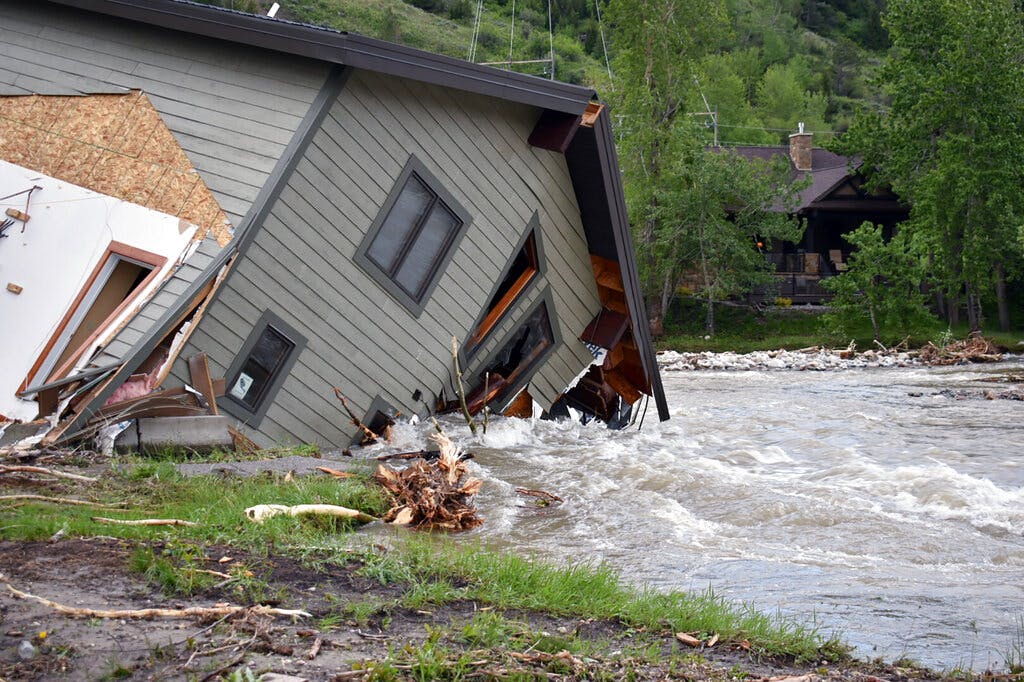Proposed Overhaul of Federal Flood Insurance Program Would See Premiums Skyrocket for New Homes in Coastal Areas
If approved by Congress — a big if — the federal government would stop issuing flood insurance altogether for new homes in flood-prone areas and drop coverage for some homeowners.

Newly constructed beachfront and other properties in flood-prone areas would get much more expensive to insure if plans reportedly being proposed by the Biden administration to alter the nation’s flood insurance program make it through a congressional gauntlet.
The proposed changes amount to a complete overhaul of the heavily subsidized 54-year-old National Flood Insurance Program, which is currently the only way for 5 million homeowners in flood-prone coastal and low-lying areas to insure their homes against water damage. In all, the program insures more than $1.3 trillion in assets around the country.
If approved by Congress — a big if — the federal government would stop issuing flood insurance altogether for new homes in flood-prone areas and drop coverage for homeowners who make repeated claims. Those homeowners would be forced to buy the insurance on the open market at substantially higher rates.
A study by the Property Casualty Insurers Association of America in 2009 concluded that the federal program is providing insurance at about half the rate that would be charged by the private sector. Flood insurance rates for lower-risk properties would likely cost about 23 percent more in the private sector, but those for higher-risk properties would be more than 200 percent higher if purchased on the open market.
Another proposal submitted to lawmakers by the Biden administration would establish new disclosure laws that would force sellers or landlords to disclose a property’s history of flooding before a sale or lease agreement is signed, as well as forbid the government from issuing flood insurance for commercial buildings regardless of where they are or when they were built.
A policy director at the libertarian-leaning R Street Institute in Washington, D.C., Jerry Theodorou, called the changes being proposed by the administration “transformational.”
“I was quite surprised,” Mr. Theodorou said. The former insurance industry executive who now heads the think tank’s Finance, Insurance and Trade Program will be testifying on the topic Thursday before the U.S. Senate’s Banking Committee, which has legislative oversight of the program.
“What’s in this bill is even stronger than what people like me are advocating,” he said. “The first words that came to my mind were ‘bold and ambitious.’”
The challenge, he added, will be getting it past Congress, which has blocked similar efforts in the past.
“There are people in Congress who don’t want to move an inch, much less a hundred yards,” he said.
Critics of the program have long charged that it amounts to a taxpayer subsidy for expensive waterfront homes. Previous attempts to change it have met stiff resistance particularly from legislators in New England and Southeastern and Gulf Coast states with substantially developed coastlines.
When the Federal Emergency Management Agency announced last year that it would be revising the way it calculates risks to certain properties and raising its flood insurance rates accordingly, nine senators — from New York, New Jersey, Florida, Louisiana, and Mississippi — wrote to the head of FEMA at the time demanding that the agency backtrack on its plans.
“We have serious concerns about how the program has thus far been constructed, presented and begun to be implemented and more significantly troubled by reports that nearly 80% of policyholders will see premium increases nationwide,” the senators wrote.
Details of the Biden administration plan were first reported by Politico’s E&E News and are expected to be formally announced this week.
A spokesman for FEMA, which oversees the program, declined to confirm details of the proposals other than to say that the agency provided Congress with 17 different legislative proposals to overhaul the flood program in May.
“The proposals represent the agency’s vision to create a more resilient, sustainable program that is equipped to meet the increasing impacts of climate change,” the spokesman, Jeremy Edwards, said.

